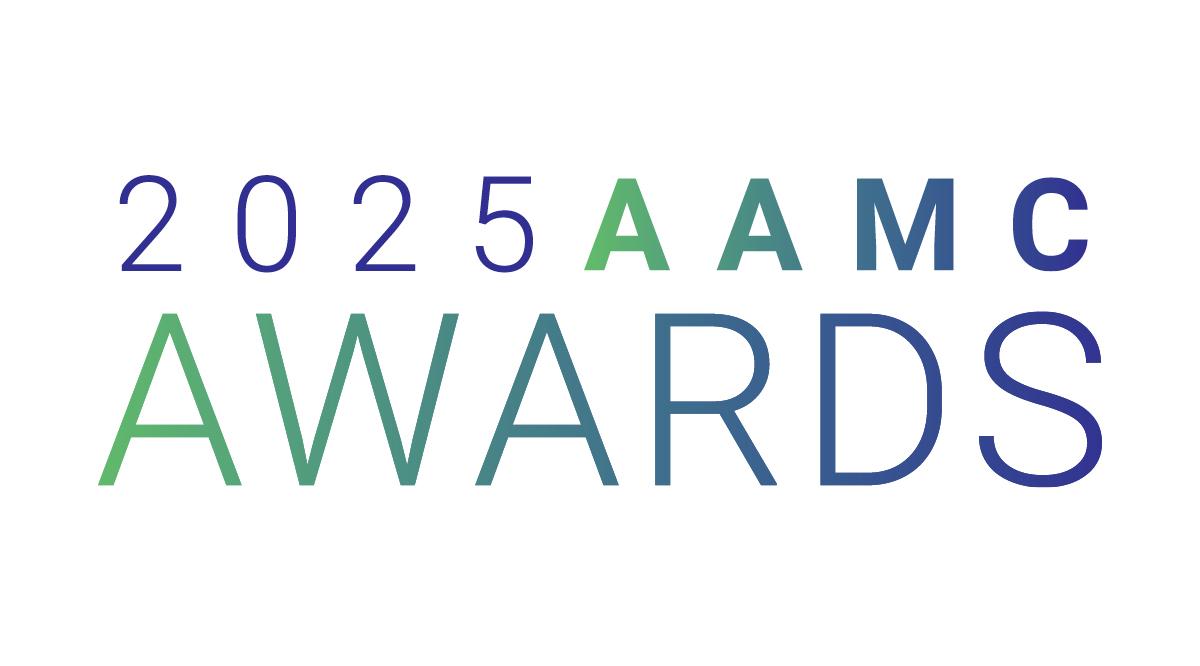An infectious disease expert who is one of the nation’s most recognized and respected experts on vaccination. A physician-scientist whose research has transformed the treatment of ALS and diabetes. The former leaders of the National Institute on Minority Health and Health Disparities, the National Medical Association, and the Accreditation Council for Graduate Medical Education. These are among the recipients of the 2025 AAMC Awards, which recognize individuals and institutions that have made outstanding contributions in medical education, research, clinical care, and community engagement. They were honored during a virtual awards ceremony on Oct. 22.
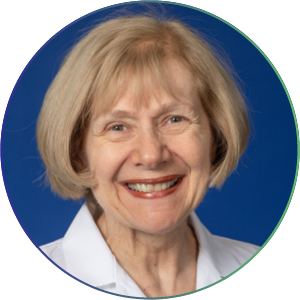
Eva L. Feldman, MD, PhD: 2025 Award for Distinguished Research in the Biomedical Sciences
Thanks to the work of University of Michigan neurologist Eva L. Feldman, MD, PhD, clinicians now have a better understanding of the pathogenesis and treatment of two complex disorders: amyotrophic lateral sclerosis (ALS) and the neurologic complications of diabetes. Dr. Feldman, a physician-scientist who directs the ALS Center of Excellence at the University of Michigan Medical School and the NeuroNetwork for Emerging Therapies, led the team that developed the first ALS environmental-risk score, which calculates the likelihood of a person’s developing ALS and also predicts survival after disease onset. In addition, her team has recently uncovered key dysregulated pathways central to ALS progression, including oxidative stress and neuroinflammation, and led FDA-approved clinical trials of intraspinal stem cell transplantation, which changed the field of stem cell therapy and offers rare hope for patients with ALS and their loved ones. Dr. Feldman is a member of the National Academy of Medicine and past president of the American Neurological Association and the Peripheral Nerve Society.

Valerie Montgomery Rice, MD, FACOG: 2025 Herbert W. Nickens Leadership Award
Throughout her distinguished career, Valerie Montgomery Rice, MD, FACOG, president and CEO of the Morehouse School of Medicine (MSM), has made an indelible impact, from pioneering research into women’s health, to expanding representation in health care and addressing health care disparities, to leading multiple institutions. She started her career at the University of Kansas Medical Center and then served as chair of obstetrics and gynecology at Meharry Medical College in Nashville, Tennessee, where she expanded residency opportunities and research infrastructure, with a focus on benefiting students underrepresented in medicine. In 2011, Dr. Montgomery Rice arrived at MSM, where she has transformed medical education both locally and nationally. During her time at MSM, she has doubled the medical-student class size from 55 to 110 annually, increased the number of degree programs from eight to 16, and increased the number of graduate medical education (GME) programs from seven to 14. Her fundraising efforts have also led to transformational financial support for various initiatives at the institution, with the historic $175 million Bloomberg Philanthropies gift.
Learn more about Dr. Montgomery Rice
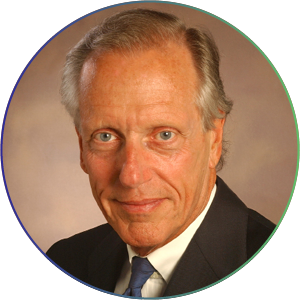
William Schaffner, MD: 2025 Robert Wood Johnson Foundation David E. Rogers Award
As one of the most widely recognized and respected experts on vaccination, infectious disease, and public health and safety, William Schaffner, MD, professor of medicine at Vanderbilt University School of Medicine, has long been a go-to expert for media outlets, public health institutions, and policymakers. He began his illustrious career as an Epidemic Intelligence Service officer at the Centers for Disease Control and Prevention (CDC) in Atlanta, and then served as medical director for the National Foundation for Infectious Diseases and on the executive board for the Infectious Diseases Society of America. He also served a record-setting 42 years with the CDC Advisory Committee on Immunization Practices, work that helped improve vaccine access and administration for children and adults in underserved communities. As a research scientist, Dr. Schaffner has published more than 600 studies, reviews, and book chapters on infectious diseases, bridging epidemiology, infection control, and immunization. He has additionally received numerous major awards, including from the American College of Physicians, the Infectious Diseases Society of America, and the American Public Health Association.
Learn more about Dr. Schaffner

Mill Etienne, MD, MPH, FAAN, FAES: 2025 Arnold P. Gold Foundation Humanism in Medicine Award
Mill Etienne, MD, MPH, vice chancellor, associate dean for student affairs, and associate professor of neurology and medicine at New York Medical College (NYMC) in Valhalla, New York, has often reflected on how growing up in impoverished Port-au-Prince, Haiti, shaped his clinical and pedagogical approach. Dr. Etienne knows that seeing the humanity of each patient is key to providing good care, but he also understands that making system-wide changes can have an enormous impact. Shortly after 9/11, Dr. Etienne joined the U.S. Navy and was commissioned while still a resident at Columbia University. Because of his ties to Haiti, Dr. Etienne served as one of the physicians and chief of the ethics committee on board the Navy hospital ship Comfort during Operation Unified Response, the U.S. military response to Haiti’s devastating earthquake in January 2010. In addition to his naval service and work at NYMC, Dr. Etienne is a visiting scholar at the National Center for Bioethics in Research and Health Care at Tuskegee University in Alabama, and director of medicine and neurology at WMCHealth’s Good Samaritan Hospital, the same hospital where he had limited access to care during his youth.
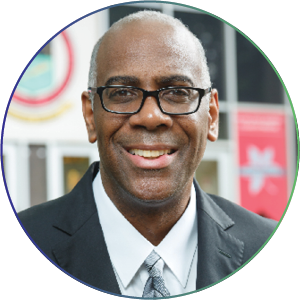
Leon McDougle, MD, MPH: 2025 Louis W. Sullivan, MD, Award
As the first African American professor with tenure in The Ohio State University (OSU) College of Medicine’s Department of Family and Community Medicine, Leon McDougle, MD, MPH, associate vice president of community health, mentoring, and engagement, has charted a trailblazing path. In his 20 years as director of the OSU College of Medicine’s premedical program — Medical Careers Pathway Post Baccalaureate Program (MEDPATH) — Dr. McDougle advised and mentored countless medical students and biomedical researchers from disadvantaged backgrounds. In 2020, he was installed as the 121st president of the National Medical Association and guided the organization through the COVID-19 pandemic. In part because of his leadership and extensive public outreach during that time, vaccine confidence in the Black community improved nationally, from 20% in December 2020 to 55% in March 2021; by October 2021, 73% of Black adults had received at least one dose of the COVID-19 vaccine. A longtime contributor to the AAMC, Dr. McDougle served as national chair of the AAMC Group on Collaboration, Engagement, and Community (GCEC) from 2013 to 2015 and on the AAMC Group on Student Affairs’ (GSA) Student Opportunity, Access, and Retention Committee (SOAR Committee).
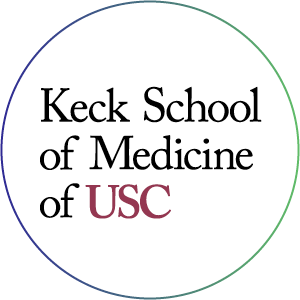
Keck School of Medicine of the University of Southern California: 2025 Spencer Foreman Award for Outstanding Community Engagement
The Keck School of Medicine of the University of Southern California (Keck School) has built a model of community engagement that integrates service, education, research, and policy, reaching far beyond campus walls to be of the community, not just in it. From the beginning of their training, Keck School students are immersed in work guided by community priorities. It begins during orientation, with Keck in the Community day, during which students work alongside faculty and partner organizations to address public health issues such as food insecurity, maternal and infant health, and public safety. It continues through the Keck Primary Care Program, launched in 2011, a four-year pathway that now includes 25% of each entering class. Today more than 90% of graduates go on to serve individuals and families experiencing limited access to health care. Research, too, is shaped by community voices, as school leaders work with more than 30 community partners to shape research priorities and methods. And at the institutional level, the Office of Community and Workforce Development aligns nearly 300 programs across mission areas, facilitating joint efforts with government, philanthropy, nonprofits, and residents to address community-identified needs.
Learn more about the Keck School of Medicine
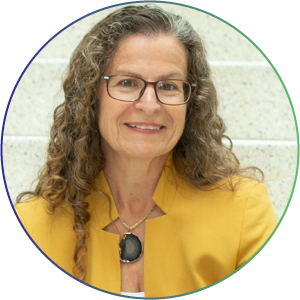
Melissa Fischer, MD, MEd: 2025 Alpha Omega Alpha Robert J. Glaser Distinguished Teacher Award
As associate vice provost for interprofessional and instructional innovation at the University of Massachusetts T.H. Chan School of Medicine (UMass Chan SOM) in Worcester, Massachusetts, Melissa Fischer, MD, MEd, has spent more than 20 years building an institutional structure that supports collaboration and the growth of interprofessional education. Dr. Fischer developed UMass Chan SOM’s first core curriculum, ensuring all students directly engage with critical topics, such as managing medical errors and end-of-life decision-making. With a focus on team-based problem-solving in consequential situations, Dr. Fischer has created programs and sessions that engage and inspire learners to achieve more together. Her innovations extend to mock electronic medical records, virtual reality training, and a standardized, patient-based program for safe opioid prescribing that encourages learners to collaborate with providers and teams from across the health care spectrum. She has authored 35 peer-reviewed journal articles in prestigious publications, including JAMA, Academic Medicine, and Medical Education. And as an internationally invited speaker, Dr. Fischer has delivered numerous plenary sessions, large- and small-group talks, and workshops disseminating the breadth of her education portfolio.

David Harris, PhD: 2025 Alpha Omega Alpha Robert J. Glaser Distinguished Teacher Award
Since joining the University of Central Florida College of Medicine in 2011, David Harris, PhD, professor of medical education, has been a formative figure in the lives of more than 1,300 medical students. Serving as lead educator for cardiac and respiratory physiology, Dr. Harris has significantly enhanced students’ educational experiences and academic success by employing active learning strategies that foster engagement, critical thinking, and deep learning. Dr. Harris has designed high-fidelity simulations, which he has integrated into the first- and second-year curricula, helping to teach students who are learning foundational medical sciences the importance of keeping the patient at the center of every interaction. In addition to supporting students, Dr. Harris plays a key role in supporting his peers by serving on the board of directors for the International Association of Medical Science Educators. In his current role as editor in chief for Medical Science Educator, Dr. Harris has developed the inaugural Editorial Board Fellowship, whereby he mentors and trains three junior-faculty fellows. He has also served as associate editor for several publications, including Advances in Physiology Education and BMC Medical Education.

Lisa Willett, MD, MACM, FACP: 2025 Alpha Omega Alpha Robert J. Glaser Distinguished Teacher Award
For 25 years, Lisa Willett, MD, MACM, FACP — an internist, professor, and executive vice chair of the Department of Medicine at the University of Alabama at Birmingham Marnix E. Heersink School of Medicine (UAB Heersink SOM) — has made an indelible impact on medical students, residents, and faculty. As associate program director from 2002 to 2012, and director from 2012 to 2022, of the Tinsley Harrison Internal Medicine Residency Program, Dr. Willett mentored and supported more than 800 young physicians through their residency journeys. During that time, she developed multiple clinical rotations, including an inpatient oncology service and an outpatient urgent care clinic, so students and residents could have more varied clinical experiences. Over the years, Dr. Willett has received numerous awards, including the UAB Top 10 Teacher Award for Excellence in Teaching, 20 times; the 2025 Distinguished Alumnus Award from the UAB Medical Alumni Association; and the 2024 Ellen Gregg Ingalls/UAB National Alumni Society Award for Lifetime Achievement in Teaching, the highest award for teaching presented by the university.
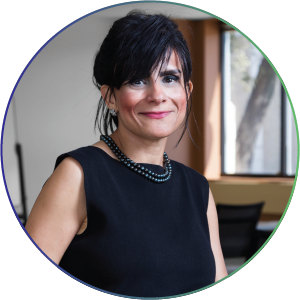
Sherine E. Salib, MD: 2025 Alpha Omega Alpha Robert J. Glaser Distinguished Teacher Award
Throughout her career, Sherine E. Salib, MD, professor of internal medicine at the University of Texas at Austin Dell Medical School (Dell Med), has excelled in both the practice and instruction of medicine. Dr. Salib began serving as an inpatient supervising attending physician for University of Texas Medical Branch students completing their internal medicine clerkships in Austin in 2005, and in 2010 she became clerkship director. When Dell Med enrolled its first undergraduate class in 2016, Dr. Salib became the school’s clerkship director; in 2019, the Department of Internal Medicine named her undergraduate medical education director, then co-associate chair of education in 2022. She subsequently took on the role of associate chair of faculty academic affairs and faculty development. In addition to her ever-increasing undergraduate medical education leadership responsibilities, Dr. Salib has served as an inpatient and outpatient teaching attending physician at Dell Med. Well-recognized in her field, Dr. Salib has received Dell Med’s Clinical Learning Environment Award every year since it was launched six years ago, as well as the Excellence in Teaching Award in 2021, among others.
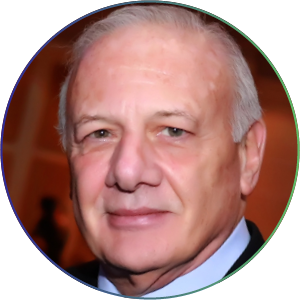
Thomas J. Nasca, MD, MACP: 2025 Special Recognition Award
After 17 years leading the Accreditation Council for Graduate Medical Education (ACGME), Thomas J. Nasca, MD, MACP, stepped down from his position as president and CEO on Jan. 1, 2025. Under his leadership, graduate medical education (GME) grew significantly: ACGME-accredited residencies rose from 3,633 programs in 2008 to 5,270 programs today. Accredited fellowships also increased in that same period, from 4,112 programs to 7,292 programs. In 2009, Dr. Nasca extended the ACGME accreditation model beyond U.S. borders; as of mid-2025, ACGME International accredits institutions and programs in 13 countries, with plans to increase this number. To manage this rapid, worldwide growth, Dr. Nasca implemented the Next Accreditation System, a data-driven process for accrediting programs and institutions, while identifying and supporting opportunities for their continuous improvement. A strong advocate for the social contract in medicine, Dr. Nasca established the ACGME Center for Professionalism and the Future of Medicine; he will continue to serve as the center’s initial senior fellow and administrative director. Dr. Nasca served on the AAMC Council of Deans from 2000 to 2007 and has presented at numerous conferences and meetings.
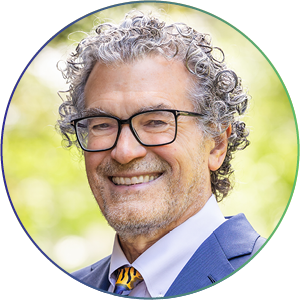
Eliseo J. Pérez-Stable, MD: 2025 Special Recognition Award
From September 2015 through March 2025, Eliseo J. Pérez-Stable, MD, led the National Institute on Minority Health and Health Disparities (NIMHD; part of the National Institutes of Health) as its director. In this role, he leveraged his personal history and passion for public health to define a national agenda focused on minority health and health disparities, and oversaw the institute’s budget, which was $535 million in 2024. His efforts have helped to advance patient-centered care and improve cross-cultural communication skills among clinicians and scientists, fostering the development of a biomedical and health care workforce prepared to address and prevent health challenges in underserved communities. Dr. Pérez-Stable began his work researching and supporting the health of underserved groups as a professor of medicine at the University of California, San Francisco, in the 1980s. Widely recognized as a leader in Latino health care and disparities research, Dr. Pérez-Stable devoted 30 years of research to supporting smoking cessation and improving tobacco-control policies in Latino populations in the United States and Latin America. A longtime contributor to the AAMC community, Dr. Pérez-Stable has served as a speaker for faculty-development programs and as a collaborator on joint programs.
Learn more about Dr. Pérez-Stable

Holly J. Humphrey, MD, MACP: 2025 Excellence in Medical Education Award and 2025 Special Recognition Award (bestowed posthumously)
Throughout her career, Holly J. Humphrey, MD, MACP, was a tireless advocate for advancing excellence in medical education and for supporting learners throughout their education. From 1989, when she joined the faculty of medicine, until 2018, when she stepped down as the Ralph W. Gerard Professor in Medicine and dean of medical education at the University of Chicago Pritzker School of Medicine, Dr. Humphrey played a central role in transforming the clinical learning environment, including developing one of the nation’s first white coat ceremonies. In 2018, she was tapped to become the eighth president of the Josiah Macy Jr. Foundation, a private philanthropic, grant-making organization and the only national foundation dedicated solely to improving the education of health professionals. Over the next seven years at its helm, Dr. Humphrey created a lasting, nationwide influence on health-professions education. She championed the Macy Foundation’s steadfast commitment to excellence by engaging a broad range of perspectives, fostering teamwork among future health professionals, and equipping them to address ethical challenges. She was an active member of several AAMC affinity groups and an elected member of the National Academy of Medicine.
